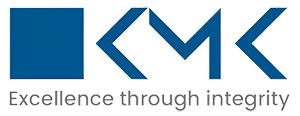Startup Fundraising 101: A Deep Dive into SAFE, Convertible Notes, and Equity Financing Options

Fundraising is a critical milestone for startups, enabling them to secure the capital needed to grow, innovate, and scale. However, navigating the complex world of financing options can be a challenge for founders. Among the most popular instruments are SAFEs (Simple Agreements for Future Equity), convertible notes, and equity financing. Each option has unique features suited to different stages of a startup’s journey. This blog explores these fundraising tools in detail to help founders make informed decisions.
Understanding Startup Fundraising
Startup fundraising is the process of attracting investments from external sources such as angel investors, venture capitalists (VCs), and even friends and family. The primary goal is to secure sufficient capital to achieve key milestones like product development, user acquisition, or scaling operations. Founders must showcase their market opportunity through compelling pitch decks, financial models, and business plans.
Before choosing a financing instrument, it’s essential to evaluate your startup’s stage, funding needs, and long-term goals. Early-stage startups may prioritize speed and simplicity in fundraising, while more established companies might focus on minimizing dilution or maximizing investor control.
SAFE Agreements: Simplifying Early-Stage Funding
What is a SAFE?
A SAFE (Simple Agreement for Future Equity) is a legal agreement that allows investors to provide upfront capital in exchange for future equity at a discounted rate during subsequent funding rounds. SAFEs are particularly popular among seed-stage startups due to their simplicity and speed.
Advantages:
- Simplicity: SAFEs are easy to execute with minimal legal complexity.
- Deferred Valuation: Founders can postpone valuation discussions until a later round when the company’s worth is clearer.
- Flexibility: SAFEs offer investors potential discounts or valuation caps without immediate ownership rights.
Drawbacks:
- Investor Control: SAFEs typically do not grant voting rights until conversion.
- Risk for Investors: If no qualifying event occurs (e.g., a funding round), investors may face lower returns.
How to Leverage SAFEs:
If you’re looking to raise capital quickly without being bogged down by complex negotiations or valuation discussions, SAFEs can provide the flexibility you need. But remember, while they simplify the process, it’s essential to track these agreements meticulously. Having organized financials can be the key to moving from a SAFE agreement to your next round of funding.
Consider working with KMK’s experts to ensure your cap table remains clear and your financials are always ready for future rounds.
Convertible Notes: Debt That Becomes Equity
What is a Convertible Note?
A convertible note is a debt instrument that converts into equity upon reaching a predefined milestone (e.g., Series A funding). It combines aspects of debt and equity financing, making it ideal for early-stage startups without clear valuations.
Advantages:
- Flexibility: Convertible notes allow founders to delay valuation discussions while raising capital quickly.
- Downside Protection: Investors benefit from interest payments and potential discounts during conversion.
- Speed: Convertible notes can be issued faster than traditional equity financing.
Drawbacks:
- Complexity: Interest rates and conversion trigger added complexity compared to SAFEs.
- Potential Dilution: Founders risk dilution if the company raises money at lower valuations before conversion.
Maximizing Convertible Notes:
Convertible notes are perfect for startups that need quick capital but may not have a clear valuation yet. The flexibility of these instruments provides time to solidify your company’s worth. However, it’s crucial to keep track of the debt, interest accrual, and conversion terms so you can accurately represent these figures in your financial records.
Equity Financing: Direct Ownership for Capital
What is Equity Financing?
Equity financing involves selling ownership stakes in the company to investors in exchange for capital. This method is most suitable for established startups with clear valuations and proven track records.
Advantages:
- Investor Control: Investors gain voting rights and board representation.
- No Debt: Unlike convertible notes, equity financing doesn’t involve repayment obligations.
- Attractiveness: Equity offers direct ownership stakes, appealing to investors seeking long-term involvement.
Drawbacks:
- Dilution Risk: Founders give up significant ownership stakes as the company grows.
- Complexity: Negotiating terms and legal agreements can be time-consuming.
When to Consider Equity Financing:
If you’re at a stage where your valuation is clear and you’re seeking substantial investments, equity financing can offer the capital you need. However, keep in mind that this will dilute your ownership and bring in new stakeholders with voting rights. It’s important to have a clear understanding of how equity dilution will affect your control of the business.
Read Also: Does Your Startup Need an Outsourced Financial Controller?
Comparing SAFE, Convertible Notes, and Equity Financing
Feature | SAFE | Convertible Notes | Equity Financing |
Type of Instrument | Warrant for future equity | Debt converting into equity | Ownership stake |
Ideal Stage | Seed funding | Pre-seed or seed | Series A or later |
Complexity | Simple | Moderately complex | Highly complex |
Investor Control | Limited | Limited until conversion | Full voting rights |
Cost for Startups | Minimal upfront costs | Interest payments possible | Potential dilution |
Choosing the Right Option: Finding Your Fit
The choice between SAFEs, convertible notes, and equity depends on your startup’s stage and priorities:
- Seed Stage Startups: SAFEs are ideal for early-stage companies focused on rapid growth without immediate valuation clarity.
- Balancing Flexibility & Protection: Convertible notes provide flexibility while offering downside protection for investors.
- Established Companies: Equity financing suits mature startups with clear valuations seeking long-term investor involvement.
KMK experts help to navigate the specifics of each instrument and maintain open communication with investors about expectations.
Conclusion: Fund Smart, Scale Fast
Startup fundraising is both an art and science that requires careful planning and strategic decision-making. By understanding the nuances of SAFEs, convertible notes, and equity financing options, founders can tailor their approach to align with their startup’s goals. Whether prioritizing simplicity or minimizing dilution risks, choosing the right instrument can significantly impact your company’s growth trajectory.
Ready to Make the Right Financial Moves?
Navigating the complexities of startup fundraising can feel overwhelming, but the right financial strategy and expert guidance can make all the difference. When it comes to securing the capital you need to scale, every decision counts—ensure your back office is as strong as your vision.
Reach out today to explore how to make your financials investor-ready and raise capital with confidence.
 Ayush Mehta is a Chartered Accountant with a strong foundation in financial operations, stakeholder management, and strategic growth. At KMK Ventures, he manages client delivery for U.S.-based businesses, managing cross-functional teams and ensuring smooth execution of projects. With over seven years of professional experience, Ayush is key in building scalable solutions for startups, particularly in reporting and cash flow management. He is passionate about mentoring emerging talent and simplifying complex financial topics for C-suite teams. Outside work, Ayush finds joy in the outdoors—embarking on hiking expeditions to push his limits, embrace solitude, and connect with nature.
Ayush Mehta is a Chartered Accountant with a strong foundation in financial operations, stakeholder management, and strategic growth. At KMK Ventures, he manages client delivery for U.S.-based businesses, managing cross-functional teams and ensuring smooth execution of projects. With over seven years of professional experience, Ayush is key in building scalable solutions for startups, particularly in reporting and cash flow management. He is passionate about mentoring emerging talent and simplifying complex financial topics for C-suite teams. Outside work, Ayush finds joy in the outdoors—embarking on hiking expeditions to push his limits, embrace solitude, and connect with nature.
Let’s Take Our Conversation Ahead
KMK is a top outsourced accounting and tax service provider. We offer end-to-end accounting and tax services for small to mid-sized businesses, with a team of 875+ professionals, including certified public, chartered, and staff accountants.
Frequently Asked Questions
For early-stage startups, SAFE agreements and convertible notes are popular because they're simple, fast, and don't require immediate company valuation. These are great seed funding options before moving into larger equity rounds.
Consider SAFE notes, convertible debt, or grants to raise money for a startup business while keeping control. These methods delay or reduce equity dilution compared to traditional equity financing.
The typical startup funding rounds are pre-seed, seed, Series A, B, etc. Most startups start with seed funding options like friends and family, angel investors, or incubators, then progress to venture capital in later rounds.
You can get funding for a startup company through several paths: pitch to angel investors, join accelerators, apply for government-backed programs, or offer convertible notes or SAFE agreements to early backers.
SAFE and convertible notes are agreements where investors give you money now in exchange for equity later. Equity financing means selling a share of your company immediately. Early-stage startups often prefer SAFE or convertible notes for speed and simplicity.
A clear startup fundraising strategy helps you secure the right kind of capital at the right time—without giving up more equity than necessary. It also builds investor trust and sets your business up for long-term growth.
USA:
651 N Broad St Suite 205, Middletown, DE 19709, USA
Phone: 310-362-2511
India:
300, Sankalp Square-3B
Sindhu Bhavan Marg,
Ahmedabad, Gujarat 380058
For Career: 91-98240-42996
Developed by Bluele | Copyright © 2026 | KMK Ventures Private Limited. | All Rights Reserved


